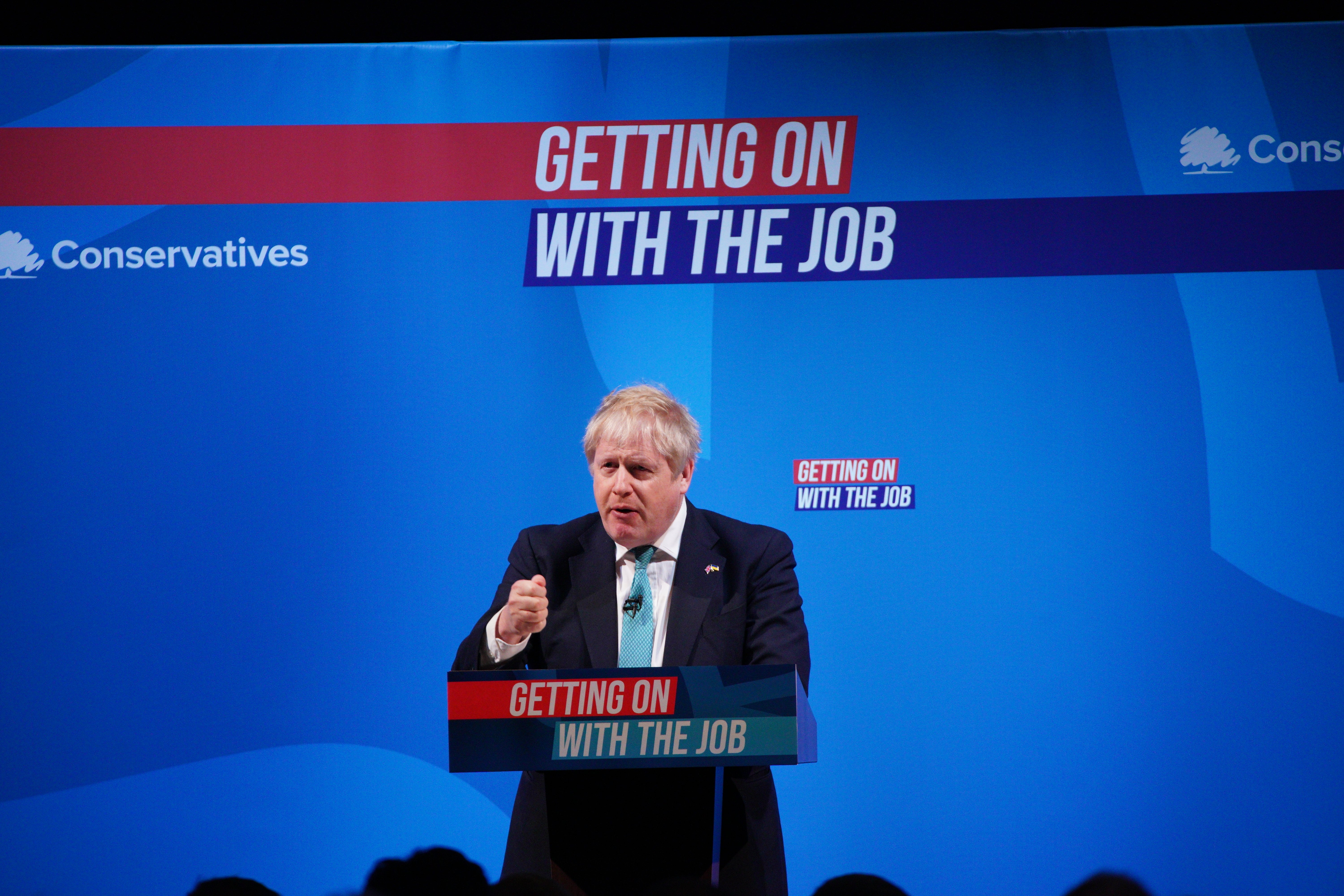Tories think their ‘Brexit opportunity’ is to use the issue to defeat Keir Starmer
An Independent event explored the question of what Jacob Rees-Mogg is for, writes John Rentoul


Delivering on the promises of Brexit was top of the government’s list of priorities, according to David Canzini, the prime minister’s deputy chief of staff, in a presentation to political advisers in Downing Street on 11 March.
I have mentioned this before, but it is important, because it is one of the indications, more or less out in the open, of how the Conservatives intend to fight the next election.
Everyone knows that Brexit is not the top priority of the British people, so when Boris Johnson claims to be “delivering the people’s priorities”, a phrase shamelessly plundered from New Labour, he is talking nonsense. But instead of the prime minister’s opponents loudly accusing him (again) of being a liar, they should pause to wonder why Canzini, charged with organising the election campaign, put Brexit top of the list.
“It was a strange list of priorities,” The Times quoted one of those present for Canzini’s slide show. “We’re on the brink of a generational cost-of-living crisis and yet Brexit was top of the list.” The cost of living was second on the list, followed by the NHS, crime, and small boats.
But Canzini was unapologetic: “If you don’t think that’s a priority you shouldn’t be here.” The Conservatives see Brexit as one of the dividing lines that will help them present Keir Starmer and the Labour Party as out of touch. These issues work for the Tories precisely because they are not a priority. Brexit isn’t a priority because people think it is done. They don’t think it was done well, but they don’t think politicians do anything well, so that doesn’t come as a surprise.
But the one thing they don’t want is to re-open it, and that is why the Tory tactic over the next two years will be to suggest that Labour want to reverse Brexit.
That is why Johnson said in his last reply to Starmer at Prime Minister’s Questions before the Easter break: “One thing we know is that he would like to take us back into the European Union and take us back into lockdown if he possibly could.” Starmer cannot deny it, because he did think that EU membership was better than the alternative.
So when Johnson appointed Jacob Rees-Mogg as minister for Brexit opportunities in the last reshuffle, it was not about delivering material benefits of Brexit. The Tories think their “Brexit opportunity” is to use the issue to help defeat Starmer at the next election.
That was the context of last night’s online event staged by The Independent, “Exploring the government’s pursuit of Brexit opportunities,” featuring Anand Menon, director of UK in a Changing Europe, Naomi Smith, chief executive of Best for Britain, and Jon Stone, my colleague on The Independent’s political team. (You can watch the video here.)
I fear some of our audience of Independent readers will have been disappointed by the failure of the panel to condemn Vote Leave and all its works (sample reader’s question from Frank Takacs: “When will the government finally admit that Brexit was an unmitigated disaster?”).
Professor Menon made the important point that the alternative to Brexit Britain was not a social-democratic paradise but the continued government of David Cameron and George Osborne. Against that counterfactual, a post-Brexit levelling-up of regional inequality isn’t so absurd.
Indeed, Smith, whose Best for Britain campaign was founded to oppose Brexit, even said that Northern Ireland might have been the one part of the UK that really could have made a success of Brexit, by having access to both the UK and EU markets on favourable terms. It was only the internal politics of the Conservative Party that resulted in a protocol that even the Brexiteers now say doesn’t work.
To keep up to speed with all the latest opinions and comment, sign up to our free weekly Voices Dispatches newsletter by clicking here
What I thought was interesting, though, was that no one on the panel thought that what most of the audience wanted – a plan for rejoining the EU – was a possibility for a long time. Although Andrew Adonis’s European Movement is campaigning to rejoin, and the Liberal Democrats have set out a “roadmap to the EU single market”, Smith said that Best for Britain judged that “now is not the right time” to campaign to rejoin. And the Labour Party is not even prepared to consider renegotiating the trade agreement.
The most that Starmer is likely to pledge at the next election, the panel agreed, would be to negotiate a separate SPS (sanitary and phytosanitary) deal that would make it easier to trade livestock, food and plants. Given that the government might sign such a deal itself before the election, because it would help with Northern Ireland, that would leave Labour with little to say.
But that is not going to stop the Conservatives putting words in Starmer’s mouth – many of them words that he uttered in the recent past as shadow Brexit secretary, trying to prevent Brexit. Canzini knew what he was doing when he put Brexit at the top of the Tories’ list of priorities.






Join our commenting forum
Join thought-provoking conversations, follow other Independent readers and see their replies
Comments